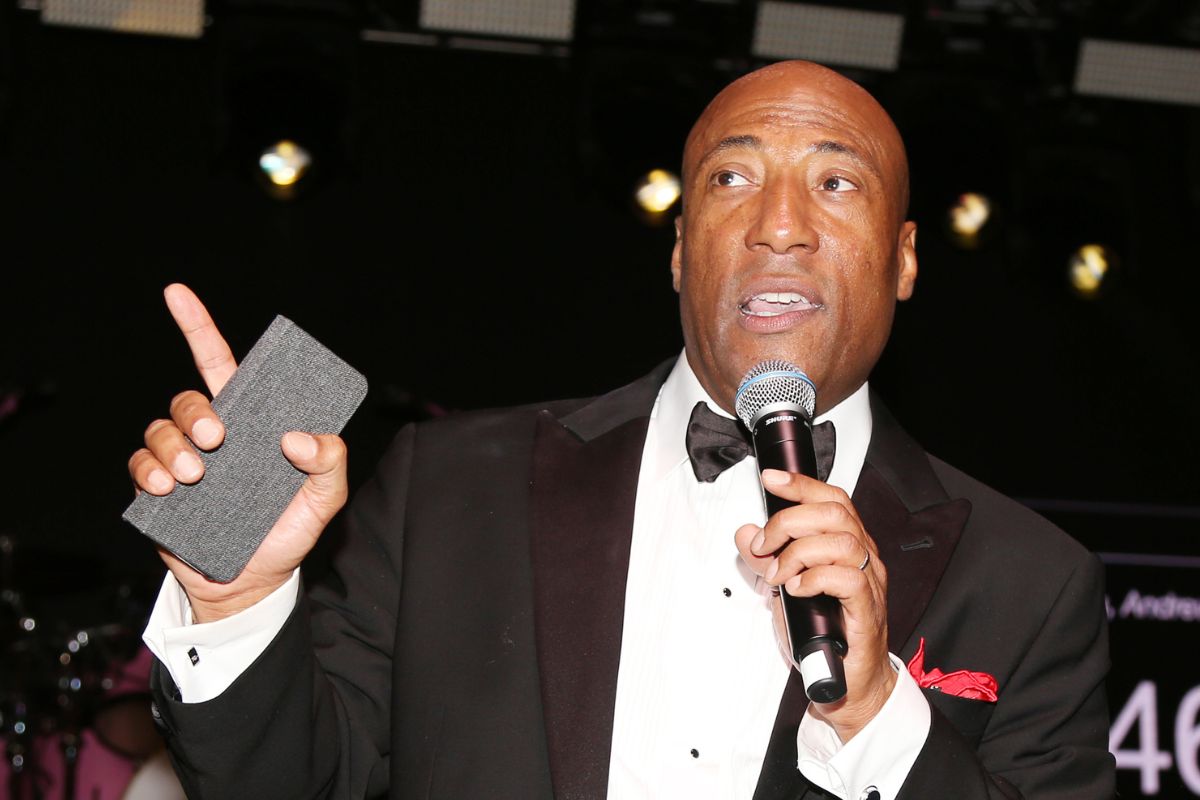Media mogul Byron Allen is mired in a legal battle with a Korean-American businessman, who claims rumors that he was a foreigner trying to take over newsrooms in the U.S. tanked a huge deal.
Soohyung Kim, Standard General’s scorned CEO, claims that Allen’s influence led the FCC to reject Kim’s $8.6 billion acquisition of TEGNA Inc., a publicly traded spinoff of media giant Gannett.
TEGNA is a massive operation that owns and operates a portfolio of assets.
The media company owns television stations in 51 markets, affiliated with major networks such as ABC, CBS, NBC, and FOX.
TEGNA also has digital platforms, including websites, mobile apps, OTT streaming services, production studios that produce original content, and advertising and marketing services provided through TEGNA Marketing Solutions.
The lawsuit claims that a race discrimination crusade fronted by Allen ruined the deal and now Kim wants to get paid for the damages Allen supposedly caused with his smear campaign.
Kim claims that his Asian ethnicity was a decisive factor in the FCC’s decision, ultimately benefiting Allen.
The lawsuit asserts that Allen used his status as a prominent Democratic donor to sway FCC officials, including Chairwoman Jessica Rosenworcel, to favor Black-owned businesses over Asian-American ones.
Consequently, this purported bias dashed Kim’s aspirations to expand his holdings in the broadcast sector.
Lawyer Tyler R. Green highlighted the role of racial dynamics in the FCC’s decision-making, stating that “advancing equity” seemingly disregarded Kim’s rights due to his Asian descent, characterizing it as a manipulation of racial equity.
Green further accused Allen of leveraging his racial identity as a tool to maintain and enhance his media empire.
“Mr. Allen knows that as a Black American and the owner of the largest Black-owned media company, he has tremendous leverage over the race-conscious FCC, which actively seeks to expand minority ownership,” Green remarked.
He added that this influence undermined other minority media owners like Kim. The lawsuit claims Byron Allen gained several benefits from blocking the TEGNA deal.
These include the potential opportunity to acquire TEGNA for his Black-owned media company, Allen Media Group, more leverage over the FCC due to his race and ownership status and expansion of minority ownership in the media industry.
Green explained how discussions about the deal were influenced by perceptions of race and diversity, pointing to negative stereotypes against Asians propagated by affiliates of Allen, which painted Kim’s pursuit of media ownership as a threat.
“Objectors, organized by Mr. Allen and allies, said the deal did ‘nothing’ to advance diversity in broadcast ownership…They used Mr. Kim’s race for fearmongering, pretending as though he, an American, was an Asian foreign owner poised to take over America’s newsrooms,” Green added.
The lawsuit seeks monetary damages totaling at least $136 million and punitive measures against Allen, the FCC, and other affiliates identified as accomplices in derailing the TEGNA acquisition deal.
This scenario might have ripple effects across the regulatory landscape, prompting a reevaluation of mergers and acquisition processes, especially those involving minority-owned enterprises in the media sector.
For Byron Allen, a long-time entrepreneur in the media landscape, the lawsuit represents a significant challenge to his standing and influence.
